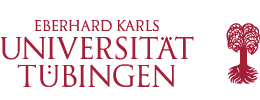CV and awards
Pictures
The following pictures can be used in press:Low resolution (left) / high resolution (right, 10 MB), image credit: University of Tübingen/ Christoph Jäckle
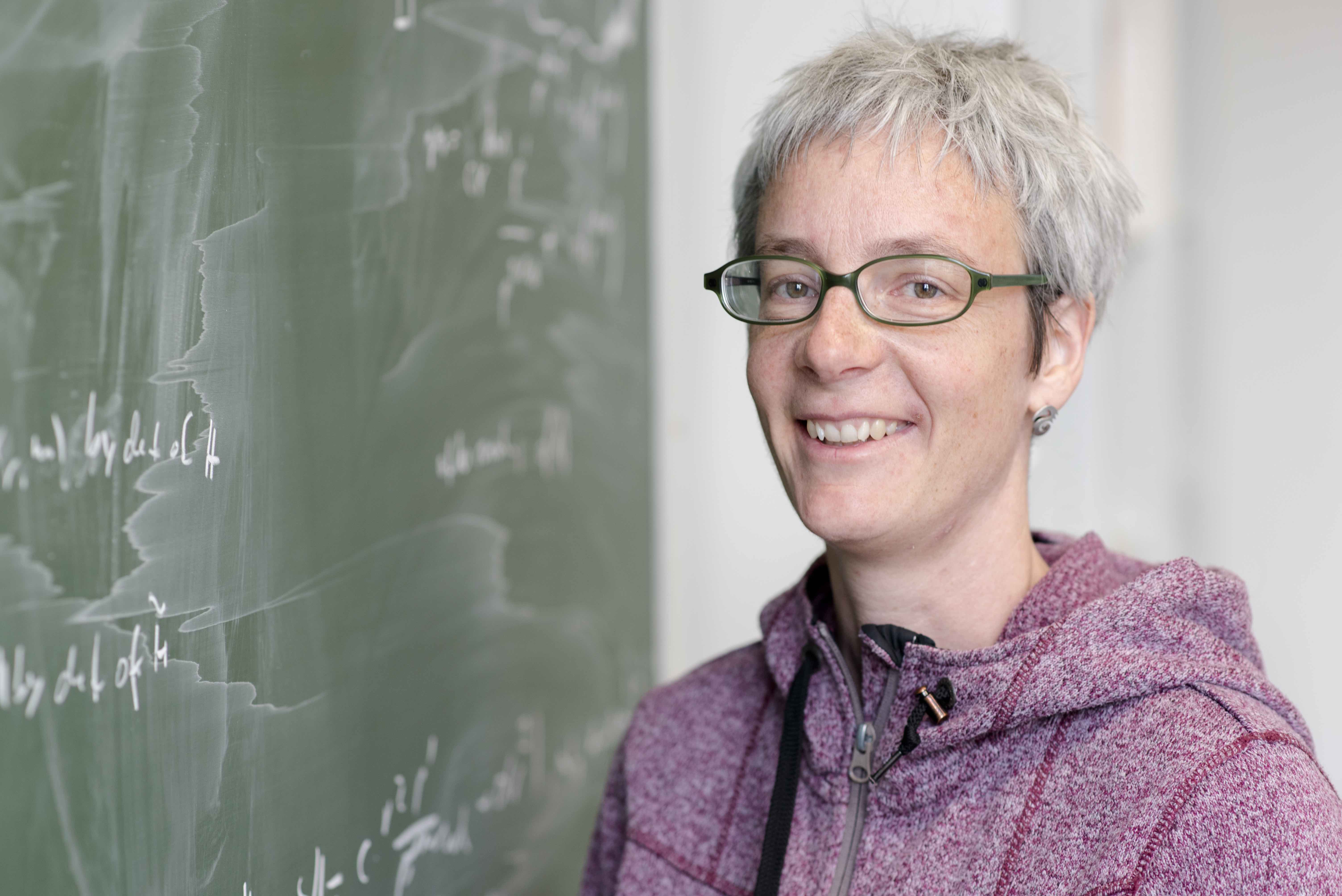
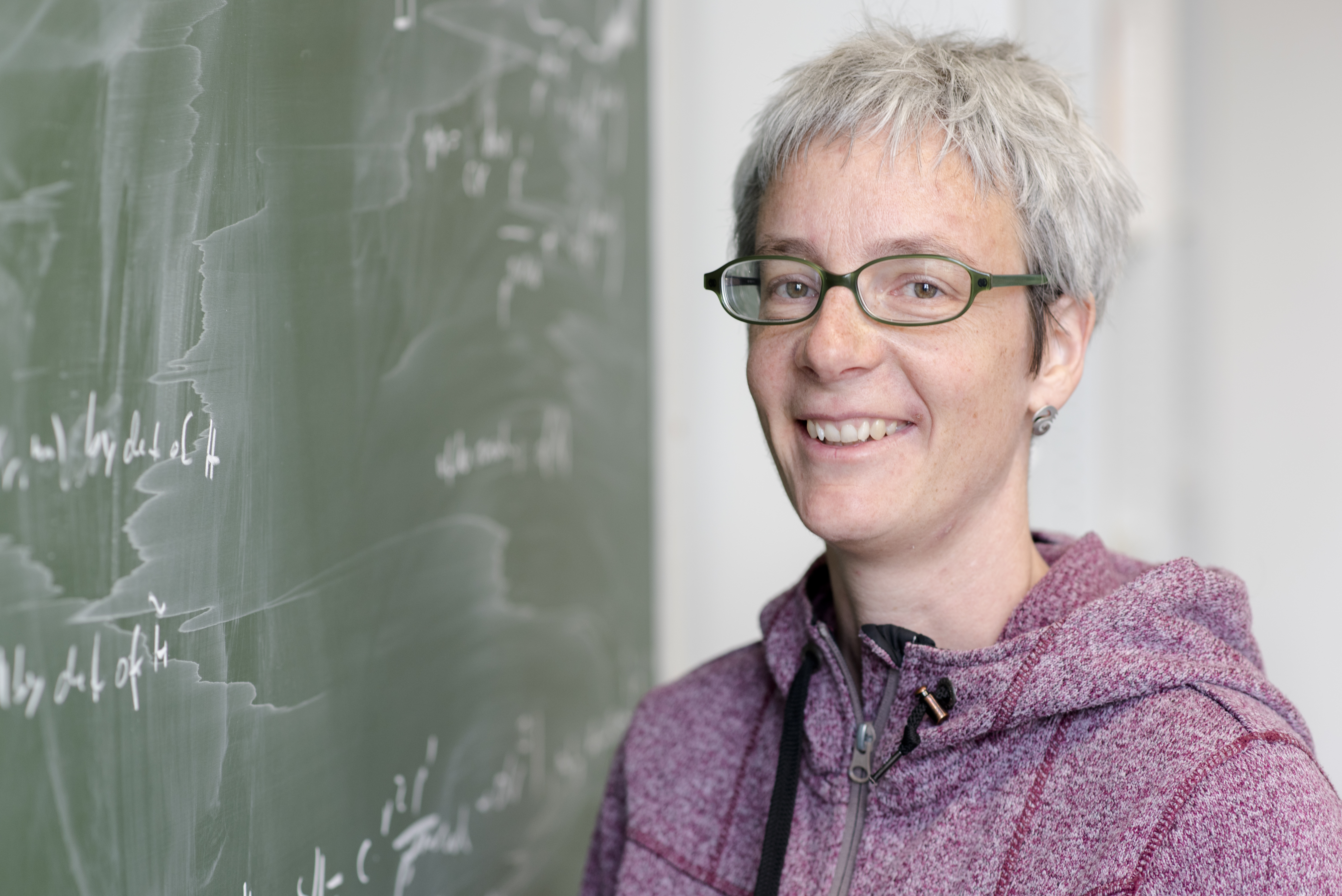
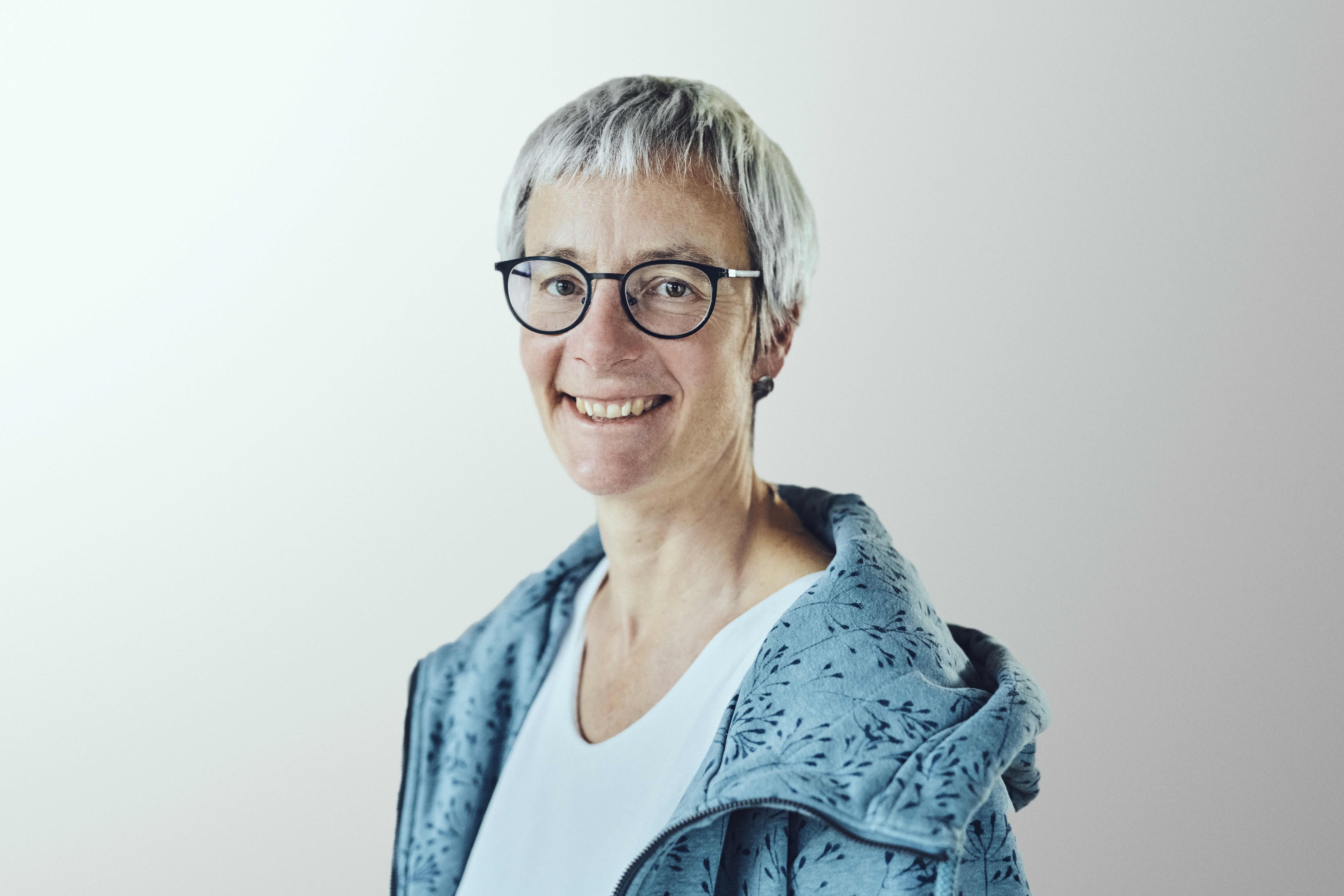
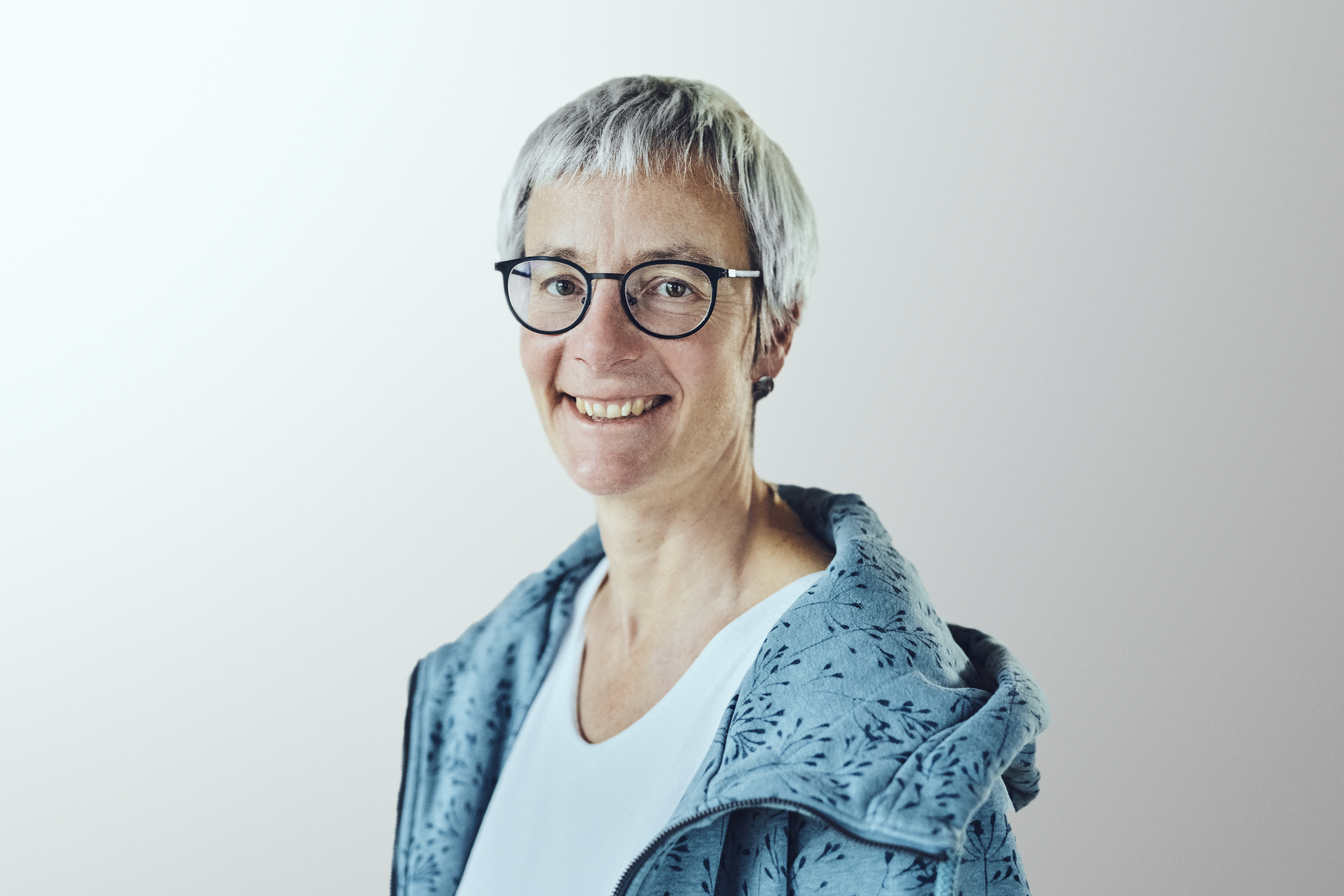
Short CV in English
Ulrike von Luxburg is a full professor for the Theory of Machine Learning at the University of Tübingen, Germany. Her research analyzes machine learning algorithms from a theoretical point of view, tries to understand their implicit mechanisms, and to give formal statistical guarantees for their performance. In this way, she reveals fundamental assumptions, biases, strenghts and weaknesses of widely used machine learning algorithms, for example in the field of explainable machine learning. Next to her own research group, she is coordinating the research consortium "Machine learning: New Perspectives for Science" and the Tübingen CZS Institute for AI and Law. She has served as program chair for some of the most important machine learning conferences such as NeurIPS and COLT, and her research won seven best paper awards at NeurIPS, COLT, ALT and IJCAI. In 2024 she received the communicator award, Germany's highest award for science communication in 2024. She is a member of the German National Academy of Sciences.Kurzlebenslauf auf Deutsch
Ulrike von Luxburg ist Professorin für die Theorie des maschinellen Lernens an der Universität Tübingen, Sprecherin des Exzellenzclusters “Maschinelles Lernen: Neue Perspektiven für die Wissenschaft”, und Leiterin des Instituts für ``AI and Law''. In ihrer Forschung untersucht sie beweisbare Garantien und theoretische Grenzen des maschinellen Lernens, zum Beispiel zu der Frage, ob Black-Box-Modelle des maschinelles Lernen ``erklärbar'' gemacht werden können. Sie ist aktive Teilnehmerin in der öffentlichen Debatte zu Chancen und Risiken der künstlichen Intelligenz. Im Stadtmuseum Tübingen hat sie gemeinsam mit einem interdisziplinären Team eine Ausstellung zum Thema Künstliche Intelligenz in Tübingen entwickelt, die 2024 Deutschlands wichtigsten Preis für Wissenschaftskommunikation erhalten hat, den Communicator Preis.
Awards
- 2024 Communicator Award by DFG/Stifterverband for the exhibition "Cyber and the City: Artificial Intelligence in Tübingen"
- 2024 Tübingen Prize for Science Communication for the exhibition "Cyber and the City: Artificial Intelligence in Tübingen"
- 2022 Bernoulli Prize for the outstanding survey article in statistics ("A tutorial on spectral clustering", 2007) by the Bernoulli Society for Mathematical Statistics and Probability
- 2022 Outstanding teachting award of the Department of Computer Science, for my lecture ``Statistical Machine Learning''.
- 2020 I got appointed as a member of the German National Academy of Sciences Leopoldina.
-
2019 IJCAI Distinguished paper award
Michael Perrot received the Distinguished Paper Award at IJCAI, the International Joint Conference on Artificial Intelligence, for our joint paper "Boosting for Comparison-Based Learning". -
2008 NIPS Best student paper award
Markus Maier won the best student paper award for our joint paper at the Annual Conference on Neural Information Processing Systems (NIPS) 2008 pdf -
2008 German Young Academy
I got appointed as a member of the "Junge Akademie", the young scientists' branch of the Berlin-Brandenburg Academy of Sciences and Humanities (Berlin-Brandenburgische Akademie der Wissenschaften - BBAW) and the German Academy of Natural Scientists Leopoldina (Deutsche Akademie der Naturforscher Leopoldina). -
2007 ALT Best student paper award
Markus Maier won the best student paper award for our joint paper at the International Conference on Algorithmic Learning Theory (ALT), Sendai, Japan pdf -
2006 COLT best student paper award
David Pal won an outstanding student award for our joint paper at the International Conference on Learning Theory (COLT), Pittsburgh, USA pdf -
2005 COLT best student paper award
Matthias Hein won the outstanding student award paper for our joint paper at the International Conference on Learning Theory (COLT) 2005, Bertinoro, Italy pdf - 2004 NIPS best student paper award
I won the outstanding student paper award at the Eighteenth Annual Conference on Neural Information Processing Systems (NIPS) 2004, Vancouver, Canada pdf - 2003 COLT best student paper award
I won the best student paper award at the International Conference on Learning Theory (COLT) 2003, Washington, USA pdf
Community service
- 2017 -- 2020 Executive board member of NeurIPS
- 2017 -- 2019 Steering committee of the Association for Computational Learning (runs the COLT conference)
- 2008 -- 2018 Action editor of JMLR
- 2015 -- 2018 Board member of the International Machine Learning Society (runs the ICML conference)
- 2017 General Chair of NIPS 2017, together with Isabelle Guyon.
- 2016 Program chair of NIPS 2016, together with Isabelle Guyon. Here is a description on how we juggled the review process for 2500 submissions with 3500 reviewers. And our Exhibition of Rejected Papers.
- 2011 Program Chair of COLT 2011 (together with Sham Kakade)
- 2008 - 2013 member of Die Junge Akademie (German Young Academy), the young scientists branch of the German National Academy of Sciences.
- 2007 - 2010 associate editor for Statistics and Computing
Workshops / summer schools I (co-)organized
- 2025 Oberwolfach Workshop "Overparametrization, Regularization, Identifiability and Uncertainty in Machine Learning"
- 2023 Dagstuhl workshop "Machine Learning in Science"
- 2016 Dagstuhl workshop "Foundations of Unsupervised Learning"
- 2015 Workshop on learning theory at DALI, La Palma
- 2015 Spring school "Structural Inference in Statistics'', March 2015, Sylt, Germany
- 2013 Spring School on "Structural Inference in Statistics", Bad Belzig, Germany
- 2012 Mini-Symposium "Machine Learning" at the Annual Meeting of the German Mathematical Society, Saarbrücken
- 2011: NIPS workshop Relations between machine learning problems, Sierra Nevada, Spain
- 2009: NIPS Workshop Clustering: Science or Art? Whistler, Canada
- 2007: Workshop on Stability and Resampling Methods for Clustering, Tübingen, Germany
- 2005: NIPS Workshop on Theoretical Foundations of Clustering, Whistler, Canada
- 2003: Machine Learning Summer School (MLSS), Tübingen, Germany
Current and past funding sources
listed hereShort CV
- Since 2015 Full professor for the theory of machine learning at the Department of Computer Science, University of Tübingen
- 2012 - 2015 Full professor ("Heisenberg-Professor") for Machine Learning at the Department of Computer Science, University of Hamburg
- 2007 - 2012 Research group leader for learning theory at the Max Planck Institute for Intelligent System, Tübingen, Germany
- 2005 - 2006 Head of the Data Mining Group at Fraunhofer IPSI, Darmstadt, Germany.
- 2002 - 2004 PhD student at the Department of Empirical Inference, Max Planck Institute for Biological Cybernetics, Tübingen.
- 2001 Diplom (~ M.Sc.) in mathematics, after studying at the universities of Konstanz, Grenoble, and Tübingen
